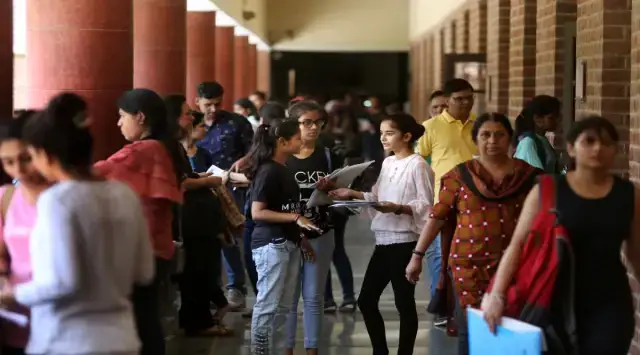
A draft curriculum document prepared by the Central Board of Secondary Education (CBSE) proposes a 5.5-day school week and longer periods for classes 9 onwards. The document also recommends that schools not hold assemblies on Saturdays.
The proposed 5.5-day school week includes half-day classes on Saturdays, with the second half of the day reserved for co-curricular activities. The longer periods for classes 9 onwards would allow for more in-depth teaching and learning of each subject.
According to the draft curriculum document, the proposed changes aim to reduce the syllabus load on students, provide more time for experiential learning, and enhance the quality of education. The document also suggests that schools focus on developing life skills, such as communication, collaboration, and critical thinking.
The proposed changes have been welcomed by many educators, who believe that they will lead to a more holistic education for students. However, some have expressed concerns about the potential impact of longer periods on students’ attention spans and mental health.
The CBSE has invited feedback and suggestions on the draft curriculum document from schools, teachers, and other stakeholders. The board will consider the feedback before finalizing the curriculum.
If approved, the proposed changes are expected to be implemented gradually over the next few years, with the 5.5-day school week being introduced first. Schools will be given time to prepare for the changes and adjust their schedules accordingly.
The CBSE’s draft curriculum document proposes a 5.5-day school week, longer periods for classes 9 onwards, and no assemblies on Saturdays. The proposed changes aim to reduce syllabus load on students, provide more time for experiential learning, and enhance the quality of education. While some concerns have been raised, the proposed changes have been welcomed by many educators. The CBSE has invited feedback on the draft curriculum document and will consider the feedback before finalizing the curriculum.
The proposed changes to the curriculum are part of a broader effort by the CBSE to reform the Indian education system. The board has been working to shift the focus from rote learning and memorization to a more experiential and skill-based approach.
In recent years, the CBSE has introduced several reforms, including the Continuous and Comprehensive Evaluation (CCE) system, which replaced the traditional system of year-end exams. The board has also made efforts to integrate technology into the classroom and promote digital literacy.
The proposed changes to the curriculum are in line with the CBSE’s vision of providing a more holistic education that prepares students for the challenges of the 21st century. The board believes that the proposed changes will help students develop the skills and knowledge needed to succeed in the modern world.
The draft curriculum document is a step towards realizing this vision, and the CBSE is committed to working with schools and other stakeholders to ensure that the proposed changes are implemented effectively.
In conclusion, the CBSE’s proposed changes to the curriculum reflect a broader effort to reform the Indian education system and provide students with a more holistic and skill-based education. The board believes that the proposed changes will help students develop the skills and knowledge needed to succeed in the modern world. The CBSE is committed to working with schools and other stakeholders to ensure that the proposed changes are implemented effectively.









